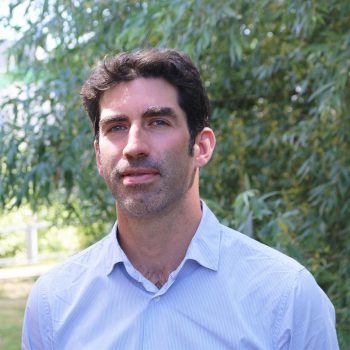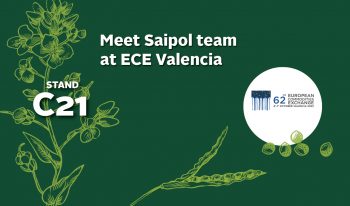Why import rapeseed or sunflower seeds when farmers grow these oilseeds? Is there competition with locally produced seeds? Benjamin Jasserand, sales manager at Saipol, assures us: “We need to secure our supplies by purchasing outside our borders, but priority will always be given to our French seeds. As a subsidiary of the Avril group, we cannot consider refusing a single seed grown in France! It is a question of common sense and cooperation.” As proof, in the last two weeks of June, with the seed crop forecast to increase, three boats of seeds were sold on the futures market, i.e. 140,000 tonnes of imported rapeseed replaced by French seeds marketed for the same periods.
Anticipating harvest accidents in rapeseed and sunflower
The objective of Saipol’s trading teams is to secure Saipol’s margin on a day-to-day basis, in order to satisfy customer demand and allow for the necessary investments in the business. They thus act on several levels to put options on seeds with good profitability, and to prevent a possible problem of harvest or any other event whatever the producing country. “Such agility requires positioning oneself more than a year in advance with the various major world exporters”, explains Benjamin Jasserand. I can then make the decision to resell the seed shipments on the Matif up to one month before crushing if a French delivery is possible.” Unlike international operators, French intermediaries and producers market their batches with short deadlines. Such a strategy does not coincide with that of our oil, protein or energy customers with an 18-month order book. Optimisation is mainly between the Australia, Canada, Black Sea origins and according to the category of seeds. “In Canada, I have a supplier who sources canola seeds with a high GHG reduction. I reserve them to supplement French seeds to supply the energy market for our customers in France and Europe”, he says.
All rapeseed and sunflower seeds grown in France are NOT crushed locally
France produces an average of 4.1 Mt of rapeseed and 1.5 Mt of sunflower seeds per year for a crushing capacity of 4.5 Mt and 1.9 Mt respectively, all processors included. In addition, a portion of French seeds is exported to our European neighbours.
Mathematically, French production is thus not sufficient to keep Saipol’s five crushing plants running 24 hours a day. “Stopping a production line due to a lack of raw materials is inconceivable given our tight schedules”, Benjamin Jasserand stresses. “This is a subject that we would like to discuss with the collecting bodies. We are open to proposals to ensure that every batch of seeds produced in France is shipped to our factories rather than exported. It is more coherent and meaningful for our teams.”
In 2021, 53% of the rapeseed processed by Saipol came from French fields and 47% from imports. In 2022, the share of local rapeseed should be higher, given the good results of the French rapeseed harvest, announced at 4.3 Mt, and the estimated sunflower harvest, which is around 1.9 Mt, if no climatic accident occurs between now and the harvest in September.
This supply of imported seeds also enables us to supply our export customers



